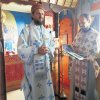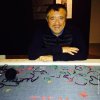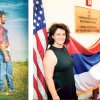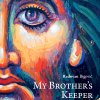Академија „Свети Сава” 1. и 2. октобра свечано прославља 15 година од оснивања – Рад су почели са 37 ученика, а данас их имају 127 и тренутно преговарају о куповини нове, веће зграде.
На најбољи начин српска православна Академија „Свети Сава“ у Чикагу дочекује овогодишњу прославу петнаестогодишњице постојања – са плановима за повећање простора. Садашња зграда, уз цркву Васкрсења Христовог у улици Норт Редвуд Драјв, тесна је за све ђаке, који наставу похађају на српском и руском језику. Школску годину у којој обележавају и свој јубилеј, Академија „Свети Сава“ започела је са рекордним бројем ђака од оснивања, објашњава у разговору за наш лист Ненад Ђорђевић, председник Одбора повереника Академије „Свети Сава“.
– Имамо 127 ученика и 22 наставника, што је 18 одсто више ђака у односу на прошлу годину. Због тога, али и зато што постоји додатно интересовање, школа тренутно преговара о куповини зграде од 1800 квадратних метара у близини наше цркве – напомиње Ђорђевић.







